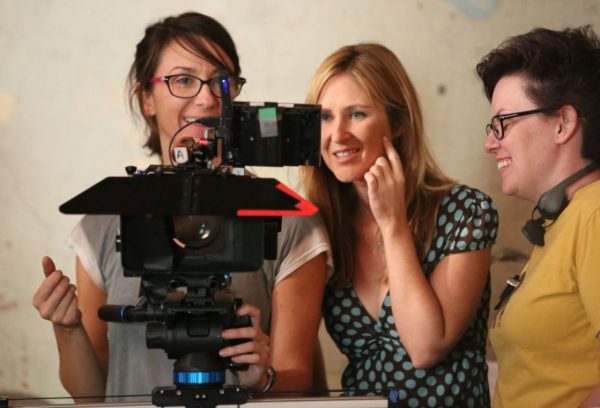
Following the Harvey Weinstein revelations, the media is loaded with news about how the #MeToo campaign is uncovering Hollywood’s darkest secrets – but what’s the situation like for women working in the industry in the UK?
Narrow Recruitment Channels
A recent report, commissioned by BFI and backed by James Bond producer Barbara Broccoli and Lucasfilm president Kathleen Kennedy, underlined the culture of nepotism which is at the core of the recruitment process in the industry.
The Work Foundation associate consultant Heather Carey stressed that a lot of employers recruit through word of mouth, creating significant obstacles to people looking for jobs in the first place. “You tend to get that a bit in certain industries but in this industry it is kind of … that’s how it’s done. If you don’t have the network it is incredibly difficult to get in and progress.” She also stressed how critical the lack of diversity is in the film industry compared to other sectors.
Women make up 40% of the workforce, although they often remain stuck in the lowest ranks or in specific sectors such as casting and costume departments. In fact, only around 30% of producer credits in 2016 British films went to women, and even fewer went to female writers (17%) and directors (13%). Some sectors remain almost completely closed to women, with less than 10% of roles being taken by females in sound, stunt and camera departments.
Actress and producer Daisy Lewis also told the BBC that “fewer parts for women on-screen made them vulnerable because speaking up means they don’t get employed”, in reference to the BFI data highlighting that the percentage of female cast members in 2016 is the same as it was in 1911: about a third.
A Pay Gap That Needs Closing
When the BBC published the salaries of its top stars in July, the data sparked a huge controversy about the pay gap between their male and female stars, prompting an open letter from the network’s most prominent female journalists and TV hosts to BBC director general Tony Hall, asking him to fix the gap immediately.
Hall has now responded to the letter in parliament during a hearing with other BBC executives and the Digital, Culture, Media and Sport committee.
The BBC director said that a plan to close the gap was already being enacted, with salary changes to be effective from next year and the salary difference to be completely nullified by 2020. He stressed the difficulty of undertaking such a plan with limited financial resources, despite confirming that fixing the gap is his “personal priority”.
A recent BFI study revealed that the average pay gap in film industry averages £3,000, which amounts to between 10% and 20% of their male counterparts.
Sexual Harassment in the Scandal Aftermath
Despite the fact that the recent scandal involving producer Harvey Weinstein mostly uncovered tragic stories from Hollywood involving American actors and crew members, the UK’s industry executives didn’t fail to take a stand on the critical issue and express their consternation with the despicable actions of their colleague from across the pond.
The BFI published a statement urging the sector to fix the diversity issue, claiming that getting women to be more represented at the top levels of the industry is a necessary first step towards progress.
Kate Kinnimont, chief executive of Women in Film and TV, said: “There has always been a culture of sexism and sexual harassment in this industry. It is a culture of bullying where the male movie moguls had total power over the careers of young ingenues. Like all forms of bullying, it is difficult to change the behaviour of the bully or indeed of the victim. It’s the onlookers, the bystanders, all of us who can create change.”
UK actors’ union Equity, representing more than 40k members, has launched a wide-ranging investigation to help tackle the harassment issue, setting up a confidential email address to encourage victims to speak out.
The BBC, which has reported a recent spike in bullying/harassment complaints, has confirmed and reinforced its zero-tolerance policy, reminding all of its staff of the procedures to step forward and report any misconduct.